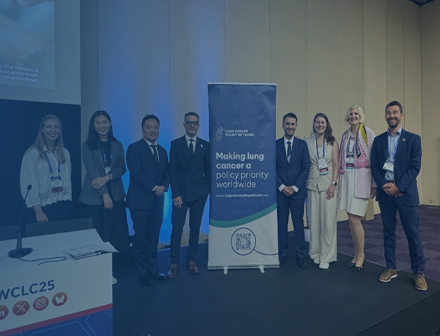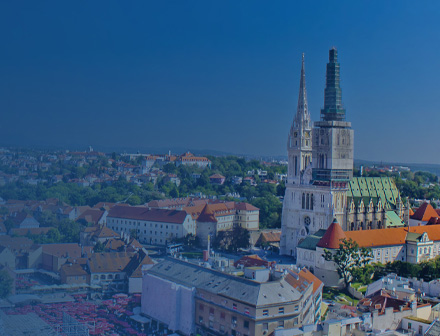We speak to Ricardo Sales dos Santos, MD, PhD; Thoracic Surgeon, Hospital Israelita Albert Einstein, MaterDei, Oncoclínicas, HapNDI Health Networks and Professor at SENAI CIMATEC University Center, Brazil
What led you to work in the field of lung cancer?
Thoracic surgery comprises the treatment of chest conditions, many of which are related to oncology. Therefore, the thoracic surgeon works on the front line in the fight against lung cancer. It is one of the most common types of neoplasia, and its investigation and differential diagnosis are closely linked to many of the diseases that can be treated surgically.
My training in Brazil and my time at the universities of Pittsburgh and Boston allowed me to work scientifically with talented colleagues from around the world. The study of lung cancer and its multidisciplinary care increased my enthusiasm in this area. And our PROPULMÃO initiative over the last 10 years has increased the knowledge and use of lung cancer screening in Brazil.
What does an average workday look like for you?
The challenges of working in thoracic surgery in Brazil, my home country, are quite different from working in the United States. In Brazil, a thoracic surgeon needs a team prepared to overcome problems that are not common in developed countries, such as lack of access to hospitals, delays in forwarding cancer cases, and difficulties using cutting-edge technologies.
What is working well in Brazil, and what could be improved?
Anywhere in the world, doing strong work means being able to offer the most advanced treatments without any economic distinction, and being able to carry out your work surrounded by a professional team that has had adequate training and is capable of dealing with new technologies. In Brazil, there are islands of excellence for the treatment of lung cancer. Such models need to be replicated in the public sector, allowing a greater number of people to have this benefit.
What motivated you to join the Lung Cancer Policy Network?
The Lung Cancer Policy Network brings together internationally renowned professionals and promotes the discussion of early cancer detection from different perspectives. Increasing the visibility of our work in Brazil should foster collaboration networks with new funding from industry and scientific or educational resources.
What would you like to see from the Network as it develops?
I would like the Network to increasingly promote actions that reduce inequalities in access to diagnosis and treatment.
What changes would you like to see in lung cancer care on a global level?
Lung cancer care can be extremely unequal depending on the country or the individual’s condition. The offer of new products, on a global scale – whether for clinical or surgical use – must be carried out with the greatest possible scope. Any solution, when it reaches a few, tends to increase the existing gaps in care.
What recent research have you found the most interesting or exciting?
Without a doubt, in the last 10 years new immunological mechanisms and targeted therapy have been the most exciting discoveries. However, in my opinion, education and awareness about the evils of smoking, and the use of tomography as an element for early diagnosis, continue to be the biggest advances in achieving a cure for most cases of lung cancer.
Outside of work, what do you spend your time doing?
I currently live in the city of Salvador, Bahia. We are on the edge of the Bay of All Saints, the largest in Brazil and second largest in the world – just smaller than Hudson Bay in Canada, but navigable during the entire year. It is surrounded by dozens of islands, so boat trips are always inviting. Finding time to practise sports such as tennis and cycling is also a priority in my daily life.
The Lung Cancer Policy Network brings together a unique mix of experts in lung cancer from around the world, united in their passion to eliminate lung cancer as a cause of death.
We regularly share profiles of our members so that you can find out more about what led them to work in lung cancer and what changes they would like to see in lung cancer prevention and care on a global level.
Recent news
Blog

Insights from WCLC 2025
At the World Conference on Lung Cancer in Barcelona, the Network hosted a very well-attended panel discussion focusing on the latest developments in lung cancer policy.
Case study

The screening programme for lung cancer in the Canadian province of British Columbia
We explore how a regional screening programme has been established throughout British Columbia.
News

Event to address lung cancer screening implementation in Central and Eastern Europe
On 16 September, the Network and the Croatian National Lung Cancer Screening Program will be hosting an in-person event.
